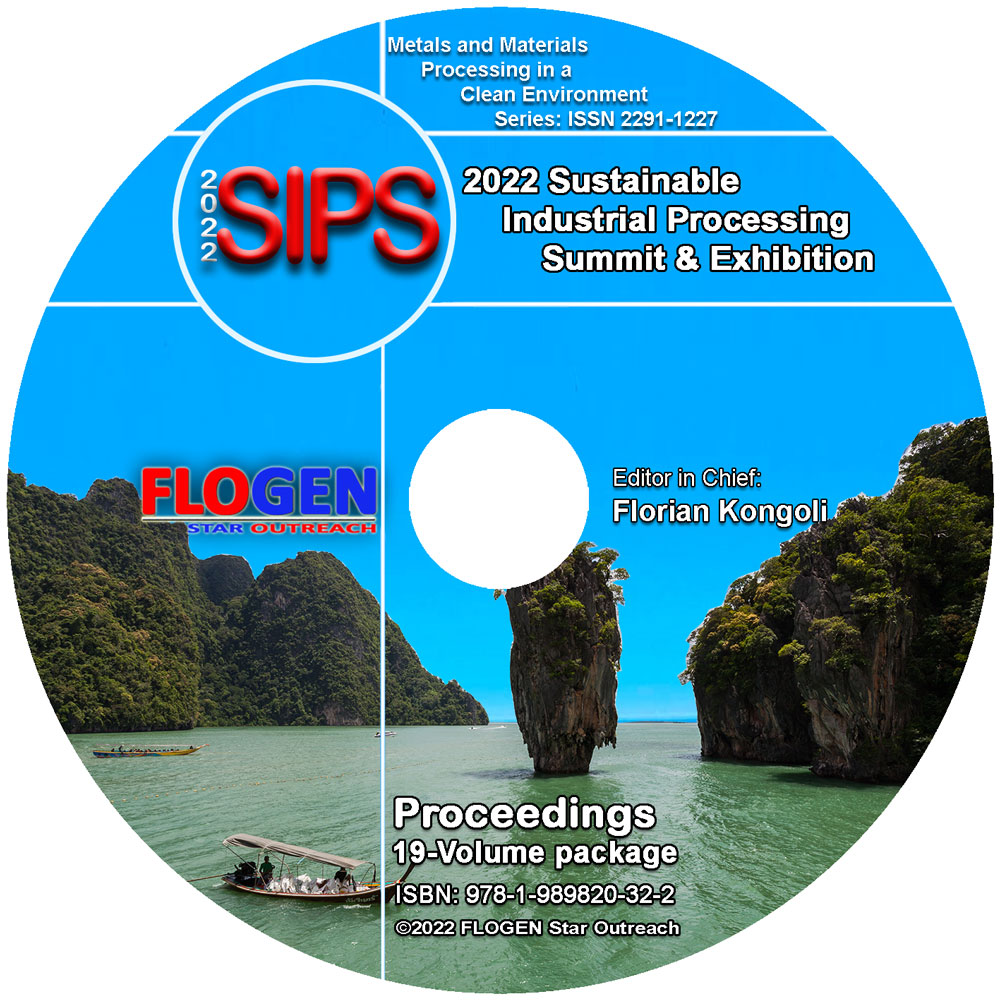2022-Sustainable Industrial Processing Summit
SIPS2022 Volume 17 Intl. Symp on Non-Ferrous, Mining, Cement, Mineral Processing, Environmental, Ecosystems and Education
| Editors: | F. Kongoli, J. Antrekowitsch, T. Okura, Z. Wang, L. Liu, L. Guo, J. Ripke, E. Souza. |
| Publisher: | Flogen Star OUTREACH |
| Publication Year: | 2022 |
| Pages: | 140 pages |
| ISBN: | 978-1-989820-66-7(CD) |
| ISSN: | 2291-1227 (Metals and Materials Processing in a Clean Environment Series) |

CD shopping page
Education as a key factor of innovative and sustainable development
Vladimir Kirko1; Elena Kononova2; Anna Lukyanova2;1RESEARCH INSTITUTE OF PHYSICS AND ENGINEERING, Krasnoyarsk, Russian Federation; 2RESHETNEV SIBERIAN STATE UNIVERSITY OF SCIENCE AND TECHNOLOGY, Krasnoyarsk, Russian Federation;
Type of Paper: Regular
Id Paper: 144
Topic: 49
Abstract:
This article examines the questions of ensuring sustainable development of socioeconomic systems through combining such factors of sustainable development as science, education and culture. The maintenance of sustainable development of socioeconomic systems alongside creation of conditions for wellbeing of the population is inseparably associated with establishment of the development pattern oriented towards the growth of financial and economic indicators, as well as the achievement of high living standards of citizens. The authors demonstrate a chain of elements ensuring sustainable development of noosphere and examine the evolution of accumulation of knowledge that leads to human capital gains. The article substantiates the key role of the modern education system in maintenance of innovation development, and suggests the mechanism for creation and distribution of structural and educational innovations. The conclusion is made that in order to ensure correspondence of the Russian education system to the requirements of the sixth technological paradigm, it is necessary to conduct significant changes in approaches towards the educational process. The authors determine the following key directions of reforms in the modern Russian education system, which are capable of creating a new vector for the development of education systems in Russia: 1) establishment of the system of continuous education that substantially rather than formally ensures the concepts of “education throughout lifetimeâ€; 2) revival and advancement of the system of integrative learning to ensure partnership of universities with businesses and society; 3) formation of the system of global access to the top educational resources, incorporation of formal and informal education.
Keywords:
education, knowledge, human capital, technological order, sustainable development, socio-economic development, noosphere, understanding, competences, technology